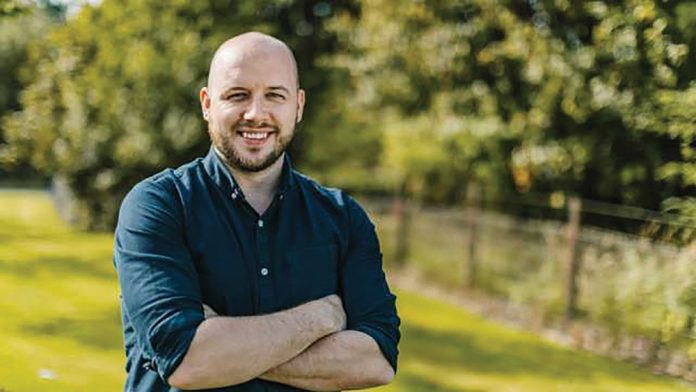Leading developer and operator of environmental technology solutions, SEM, have become one of just six international businesses to secure a place in the finals of the Water Dragons competition to discover the future entrepreneurs of the water sector.
SEM’s pioneering entry is the result of a joint project between the Aberdeen-based firm’s Lead Scientist and academics from Coventry University.
Organised by the Future Water Association, Water Dragons gives companies the opportunity to pitch innovative services or products to a panel of senior water company executives and industry specialists.
Having delivered their pitch to the panel of experts during the hotly-contested heat stages, Dr Leigh Cassidy from SEM and Daniel Ray, PhD student from Coventry University were one of only six teams to be short-listed for the final, which took place at a reception in the Canadian High Commission in London on Tuesday, March 22. The competition was won by Canadian firm, FloNergia Inc.
Entitled ‘A Wee Dram’ the SEM / Coventry project applies SEM’s patented DRAM wastewater filtration technology to the challenge of biologically recovering precious (and other) metals and nutrients from wastewater treatment plants (WWTP) and industrial effluents.
The unique, sustainable technology uses both low carbon, passive filtration and naturally occurring micro-organisms to remove gold, silver and other metals from wastewater and effluents – a process termed bioleaching.
SEM’s Lead Scientist, Dr Leigh Cassidy, led the collaboration between industry and academia. She outlined the challenges they set out to resolve: “At SEM we are committed to fostering the evolution of a circular economy. We harness naturally occurring or pre-existing substances such as by-products from other industries, to remediate wastewater, removing and recovering precious resources and nutrients which can, in turn, be re-used. What’s more, the spent DRAM media can then be used as a soil conditioner.
“With the Wee Dram project, we have applied our ground-breaking technology to tackle a number of challenging situations for industries and communities around the world. On one level, metals are an extremely valuable commodity, now more so than ever as we build increasing volumes of electric cars, wind turbines and solar panels. Currently, water companies across the UK stand to miss out on billions of pounds of potential revenue per annum from these unrecovered metals. They could also benefit from the increased value of the metal-free biosolids which remain after the bioleaching process.
“The environmental benefits of a Wee Dram are equally powerful. For example, each ton of metal extracted by traditional mining methods emits approximately 25.6 tons CO2 equivalent. The UK produces approximately 1.5 million tons of sewage sludge. If 1% of that is composed of metal, then 15,000 tons of metal can be recovered, equating to a carbon saving of 384,000 tons of CO2 equivalent. Unfortunately, much of the world’s metal is mined in conflict zones, where exploitation is rife – by re-using metal that is already in circulation, we can reduce the demand for new virgin metals, and thus the need for these mines.”
Daniel Ray of Coventry University explained how the technology works: “DRAM is an adsorptive treatment for liquid waste. It uses raw waste materials from other industries to remove a wide range of both dissolved and particulate contaminants, and has a very light carbon footprint. We have combined the DRAM technology with bioleaching, a process which utilises micro-organisms to make metals soluble, releasing them into the solution. Metals that can be bioleached include gold, silver, zinc, copper, lead, arsenic, antimony, nickel, molybdenum, cobalt and uranium.”
The project has attracted interest across the water and metals sectors, and plans are underway for further development in investigating scalability and commercialisation options.
Grant Leslie is the co-founder and COO of SEM. He added: “We are very proud of Leigh and Daniel’s success in the Water Dragons competition. A Wee Dram is yet another chapter of the SEM story, the core ethos of which is devising disruptive solutions for the recovery and re-use of valuable nutrients and resources. It showcases our capabilities in developing technology and implementing processes which contribute towards achieving the UN’s 17 Sustainable Development Goals.”
SEM collaborates with stakeholders across the agriculture, aquaculture, distillery and biogas markets to reduce the impact of waste on the environment, support the reduction of their carbon footprint, and optimise supply chains. The award-winning firm develops pioneering environmental technology, and works in partnership with clients to implement tailored, end-to-end solutions which support the safe and compliant treatment of waste products and wastewater, the recovery of nutrients, and the generation of valuable new by-products.







